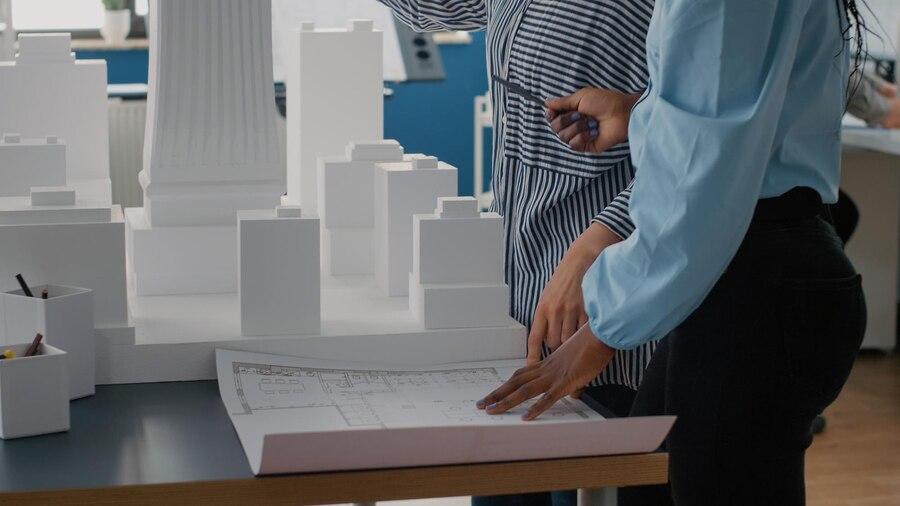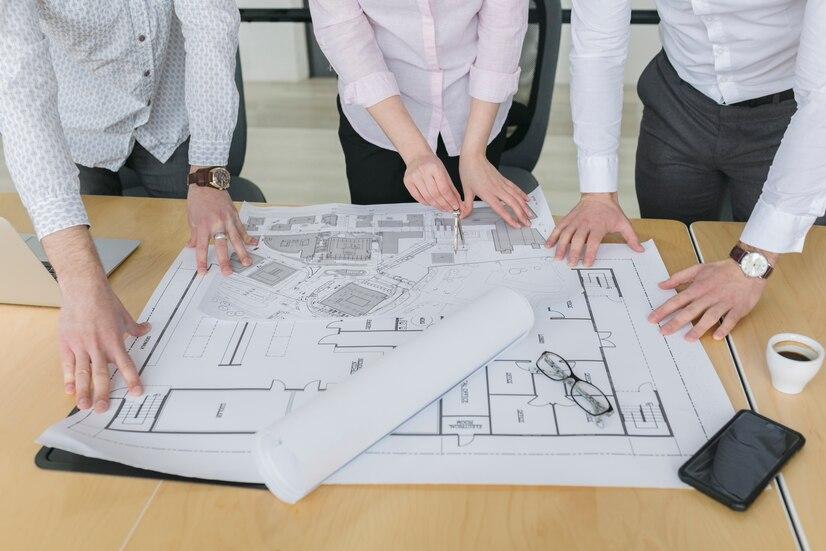

Table of Contents
- Introduction
- Role of an Architect
- Importance of Architects in Real Estate
- Types of Architectural Services
- Benefits of Hiring an Architect
- Conclusion
- Faq's
Introduction
An architect in the realm of real estate is a professional responsible for designing and planning buildings and structures. This role encompasses a wide range of activities, from conceptualizing a building's aesthetic and functional aspects to ensuring that the design complies with local building codes and regulations. Architects play a crucial role in real estate development, influencing the value, sustainability, and overall appeal of properties. Their expertise is vital for creating spaces that are not only visually pleasing but also practical and efficient. Understanding the term "architect" in real estate involves appreciating the multifaceted contributions these professionals make to the built environment.
Role of an Architect
In the context of real estate, architects perform a multitude of critical functions that extend far beyond simply drawing blueprints. They are key players in the development and construction of properties, ensuring that each project meets aesthetic, functional, and regulatory requirements. Here are some of the primary roles of an architect in real estate: Architect in Real Estate
Architect in Real Estate
Design and Planning:
Architects create detailed designs and plans for buildings, incorporating both the client's vision and practical requirements. This involves conceptual sketches, detailed drawings, and 3D models.
Regulatory Compliance:
Ensuring that designs comply with local building codes, zoning laws, and safety regulations is a crucial part of an architect's job. They navigate these legal frameworks to obtain necessary permits and approvals.
Project Management:
Architects often oversee the entire construction process, coordinating with contractors, engineers, and other stakeholders. They ensure that the project stays on schedule and within budget.
Sustainability:
Many architects prioritize sustainable design, incorporating eco-friendly materials and energy-efficient systems into their plans. This can significantly enhance the long-term value and environmental impact of a property.
Client Consultation:
Architects work closely with clients to understand their needs and preferences. They translate these requirements into viable design solutions that align with the client's goals and budget.
Site Analysis:
Before starting a project, architects conduct thorough site analyses to understand the geographical, climatic, and cultural context. This helps in making informed design decisions.
Innovation:
Architects bring creativity and innovation to real estate projects, often introducing new design trends and technologies that can set properties apart in a competitive market.
Importance of Architects in Real Estate
Architects play an essential role in the real estate industry, contributing to the success and viability of projects from concept to completion. Their expertise and vision are fundamental to creating buildings that are not only aesthetically pleasing but also functional, sustainable, and compliant with regulations. Here's an in-depth look at the importance of architects in real estate: Real Estate Architecture
Real Estate Architecture
Creative Vision and Design:
Architects bring a unique creative vision to real estate projects. They design spaces that are not only visually appealing but also optimized for functionality and user experience. Their innovative ideas can significantly enhance the marketability and value of a property.
Regulatory Knowledge:
Navigating the complex web of building codes, zoning laws, and safety regulations is critical in real estate development. Architects possess the expertise to ensure that all designs meet these legal requirements, thereby avoiding costly delays and legal issues.
Sustainable Practices:
Modern architects are increasingly incorporating sustainable design principles into their work. By using eco-friendly materials and energy-efficient systems, they help reduce the environmental impact of buildings. This not only benefits the environment but also meets the growing market demand for green buildings.
Project Management:
Architects often take on the role of project managers, coordinating between various stakeholders such as contractors, engineers, and clients. Their oversight ensures that the project adheres to timelines, stays within budget, and maintains high standards of quality.
Value Addition:
Good architectural design can significantly increase the value of a property. Well-designed spaces that maximize utility and aesthetic appeal can attract higher bids from buyers and renters, providing a better return on investment for developers.
Client Satisfaction:
Architects work closely with clients to understand their vision, needs, and preferences. This collaborative approach ensures that the final product aligns with the client's expectations, leading to higher satisfaction and better client relationships.
Risk Mitigation:
By conducting thorough site analyses and feasibility studies, architects can foresee potential issues and mitigate risks. Their problem-solving skills are crucial in addressing unforeseen challenges during the construction process.
Types of Architectural Services
Architectural services encompass a wide range of activities that cater to different stages of a construction project, from initial concept to completion and beyond. Here are the main types of architectural services provided by professionals in the field: Architectural Service
Architectural Service
Pre-Design Services:
Feasibility Studies: Assessing the viability of a project based on site conditions, zoning regulations, and client requirements.
Site Analysis: Evaluating the characteristics of a site, including topography, climate, and infrastructure.
Program Development: Collaborating with clients to define project goals, functional requirements, and budget constraints.
Schematic Design:
Conceptual Design: Developing initial design concepts and layouts based on the client's needs and site analysis.
Preliminary Cost Estimation: Providing rough cost estimates for the proposed designs to ensure they align with the budget.
Client Presentations: Presenting design concepts to clients for feedback and approval.
Design Development:
Detailed Design: Refining the initial concepts into detailed plans and specifications.
Material Selection: Choosing appropriate materials, finishes, and fixtures for the project.
Coordination with Consultants: Collaborating with structural, mechanical, and electrical engineers to integrate their work into the design.
Construction Documents:
Detailed Drawings: Preparing comprehensive architectural drawings, including floor plans, elevations, sections, and details.
Specifications: Creating detailed specifications for materials, workmanship, and installation methods.
Permitting: Assisting clients in obtaining necessary permits and approvals from local authorities.
Bidding and Negotiation:
Bid Preparation: Preparing bid documents and managing the bidding process with contractors.
Contract Negotiation: Assisting clients in selecting a contractor and negotiating contract terms.
Construction Administration:
Site Visits: Conducting regular site visits to monitor construction progress and ensure compliance with design intent.
Change Management: Handling changes or modifications requested by the client or necessitated by site conditions.
Quality Control: Ensuring that construction meets the specified standards of quality and safety.
Post-Construction Services:
Project Closeout: Conducting final inspections and ensuring all aspects of the project are completed to satisfaction.
As-Built Drawings: Preparing accurate drawings that reflect the completed project.
Post-Occupancy Evaluation: Assessing the performance of the building after occupancy to identify any issues and areas for improvement.
Benefits of Hiring an Architect
Hiring an architect can greatly enhance the quality and success of your construction project. Here are some simple benefits: Architect Expertise in Real Estate
Architect Expertise in Real Estate
Creative Designs:
Architects bring unique and beautiful design ideas.
They create custom plans that fit your needs and tastes.
Efficient Spaces:
Architects design spaces that work well and feel good to use.
They make sure every part of the space is used effectively.
Technical Know-How:
Architects understand construction methods and materials.
They ensure your building meets all local codes and safety standards.
Cost Management:
Architects help keep your project on budget.
They find ways to save money without sacrificing quality.
Team Coordination:
Architects work with other professionals like engineers and contractors.
They provide detailed plans that make the construction process smoother.
Conclusion
Hiring an architect is a wise investment for any real estate project. Architects bring a blend of creativity, technical expertise, and problem-solving skills that enhance the quality, functionality, and aesthetics of a building. They ensure that spaces are designed efficiently, comply with all regulations, and meet the specific needs and preferences of the client. With their ability to manage costs, coordinate with other professionals, and create sustainable designs, architects add significant value to real estate projects. Ultimately, their involvement reduces stress and risks, leading to successful and satisfying outcomes. Engaging an architect is not just about building structures; it's about creating spaces that inspire and endure.
explore further
Latest from Encyclopedia
More from Interactions
Resources
Dwello, for every home buyer, is a way to go from 'I feel' to 'I know', at no extra cost.


